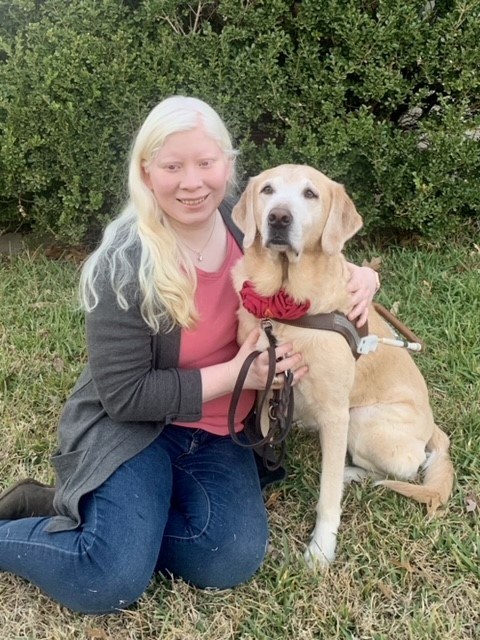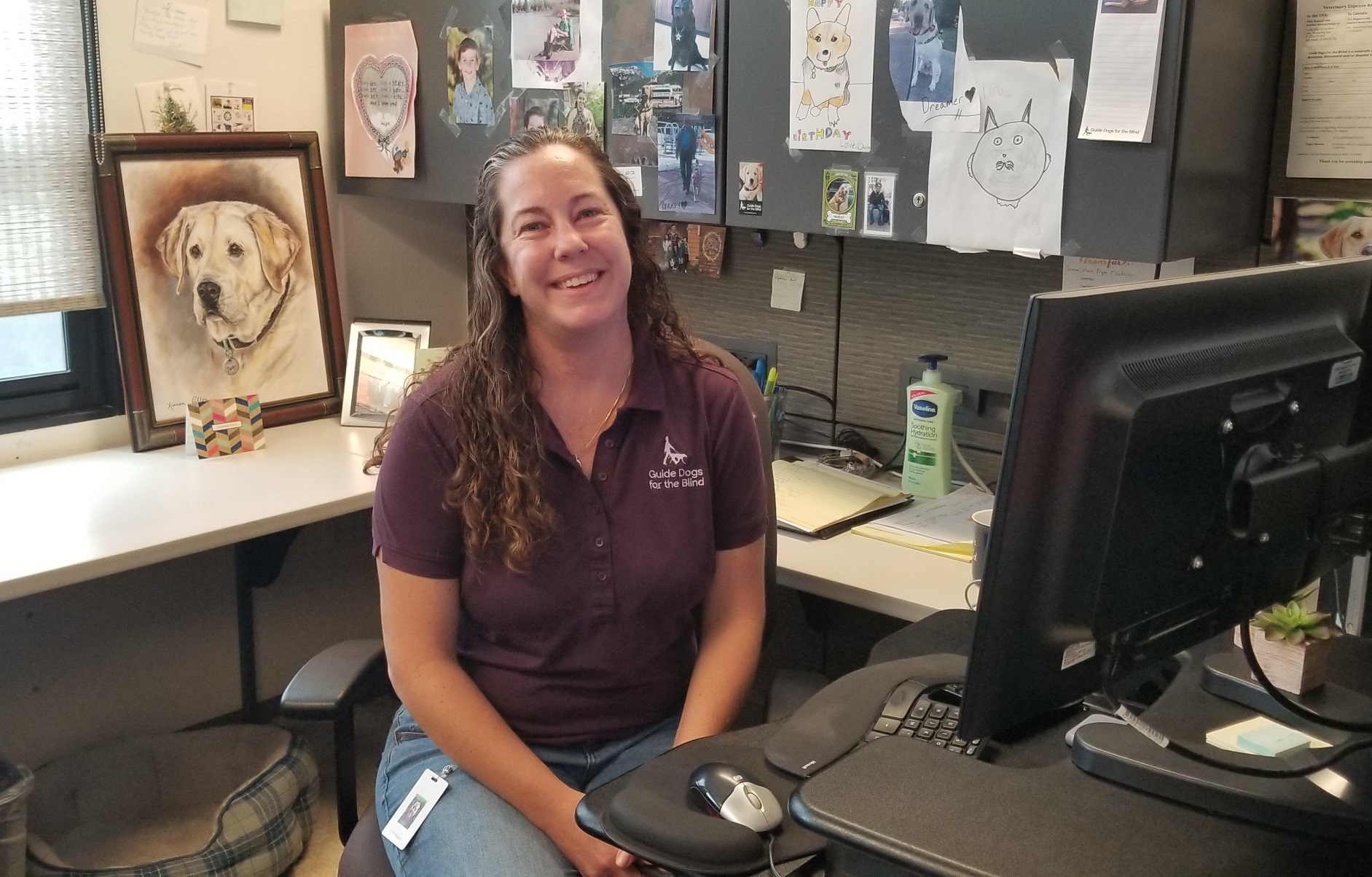Thanks to our generous supporters, Guide Dogs for the Blind (GDB) is the only guide dog school in the world that offers an extensive veterinary care program for our clients’ dogs.
GDB President and CEO Christine Benninger says maintaining the health of every dog is critical to the overall success of our guide dog and K9 Buddy teams. “That’s why we are committed to the health and well-being of all of our program dogs for their entire lives.” She says on average, GDB’s guide dogs perform their guiding work for a little more than eight years. “That’s about a year longer than the industry average. And this is in part because we make sure the cost for veterinary care is not a barrier for our clients.”
In fiscal year 2022, GDB spent more than $2M on veterinary financial assistance throughout North America. The VFA Program provides financial support for veterinary care, as needed, for all active guide dog teams and retired dogs that are adopted by the client or a family member. These dogs receive veterinary financial assistance throughout the dog’s life. The Program also provides financial support for veterinary care to volunteer puppy raisers who care for puppies in their homes. Recently, the VFA Program expanded to provide financial assistance for veterinary care to families with K9 Buddies. “At any given time, that adds up to approximately 4,000 dogs,” says Christine.
The VFA program is staffed 24 hours a day, seven days a week, so someone is always available to speak with our clients about any health-related questions they may have about their dog.

When GDB client Melissa Padron, a mom of two, found out her guide dog Cameo developed a small non-cancerous lump over her left eye, she called GDB for help. “At the time, I had a seven-month-old baby and was only working part-time. There was no way I could afford the $1,700 cost of the surgery. I’m so grateful GDB’s financial assistance program and ongoing support to graduates ensures that we can keep our guide dogs happy and healthy.”
Last year, the VFA Program handled approximately 10,000 calls. Dr. Erin Matern, a GDB veterinarian who oversees the VFA program, says most calls are about medical procedures and surgeries, but other calls are about consultations, where Dr. Matern says she explains medical conditions to the client and offers support during times when their dog is ill or injured, noting the program gives clients peace of mind.
That peace of mind is on full display in the form of thank-you cards, notes, and photos that adorn Dr. Matern’s office walls on our California campus. “I myself probably take about 20 to 30 calls a day,” explains Dr. Matern. “You never know what type of call you’re going to get. I can go from a call about a puppy to an active guide dog, to a call about making end-of-life decisions for a 14-year-old retired guide dog.
As a veterinarian, Dr. Matern says she can help assess situations by talking to the client directly or the veterinarian who is seeing the dog. “Oftentimes, local vets ask us for our opinions and want to know about what has worked in the past for our dogs. It’s great to collaborate.”
Dr. Matern says she also takes the time to educate a client on what’s happening with their dog, help put their mind at ease, and support them through tough times. “I often help them make difficult end-of-life decisions about their dog, which helps take some of the pressure off them from having to make the decision on their own.”
Sometimes, clients will explain what type of treatment is recommended for their dog and Dr. Matern will discuss the case with their local vet. “I may suggest that they first try to take things step by step when it comes to diagnostics, but if a treatment plan is reasonable, I can say yes to ensure the dog receives the absolute best care possible.”
Dr. Matern recalls one case where her decision to have the VFA program pay for a specialist made a big difference for a client’s 8-year-old guide dog. “After the local vet did a workup that included an ultrasound, the vet told our client the dog had an inoperable pancreatic tumor and only had days or a few weeks to live.”
The grief-stricken client called GDB’s VFA hotline for help.
Dr. Matern immediately contacted the veterinarian to learn more. It turned out, the vet wasn’t sure where or what the mass was. Dr. Matern recommended a specialist consult to get more information. The specialist found there was a mass on the side of the dog’s stomach but felt it could be removed with surgery.
“The good news was that it was a type of cancer that doesn’t usually spread. This dog was able to guide for another year and a half before his well-earned retirement,” remarks, Erin. “Obtaining the right diagnosis is not only important for our dogs, but it also helps GDB track diseases in our dog population so we can keep them as healthy as possible.”
As she glances around her office at the notecards and photos from grateful clients, Dr. Matern reflects on how appreciative clients are for the VFA program. “They often tell me they would not be able to have a guide dog if this program didn’t exist,” says Dr. Matern. “I’m so grateful that GDB offers this amazing program, and that I can positively impact so many lives.”
Click here to learn more about the VFA Program
Click here to make a donation to help fund the VFA Program and other GDB Programs




